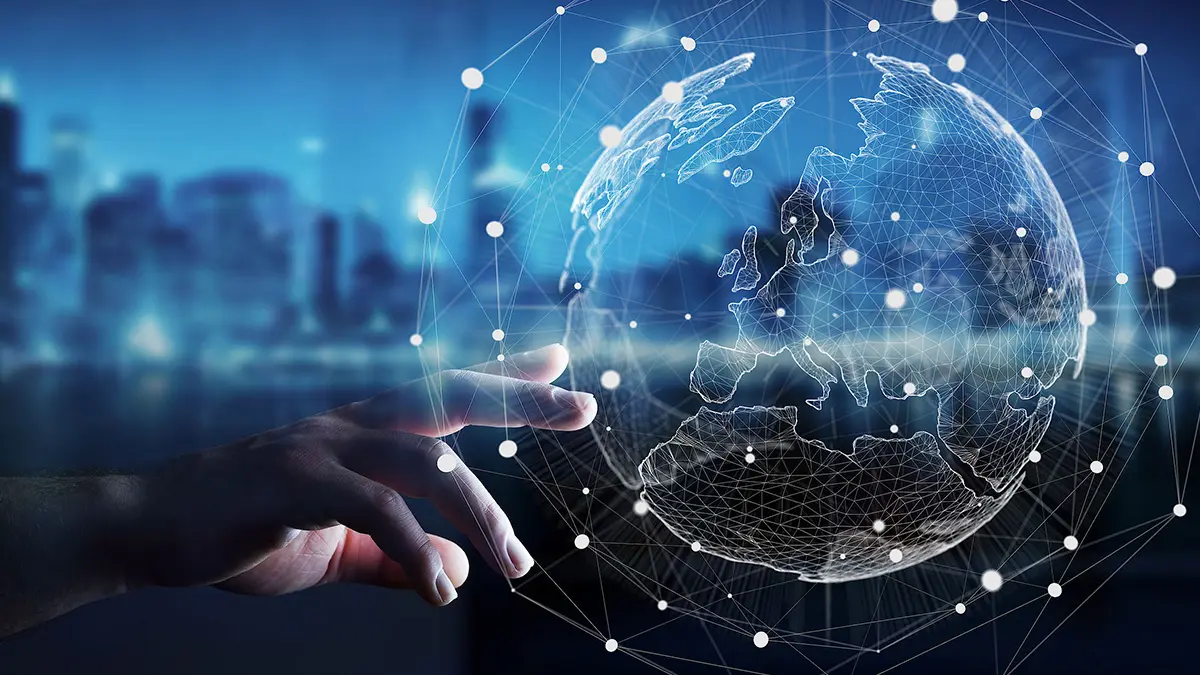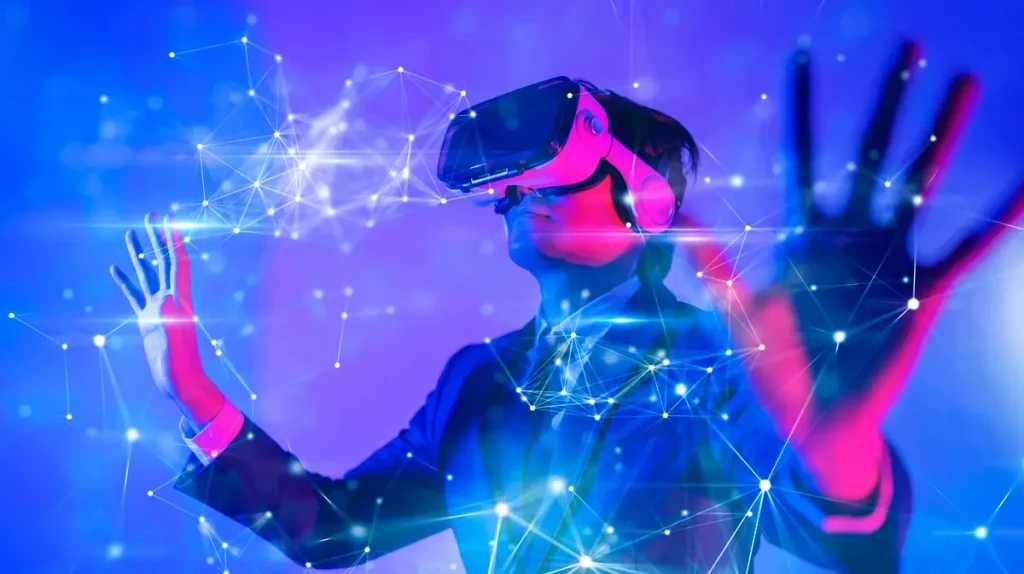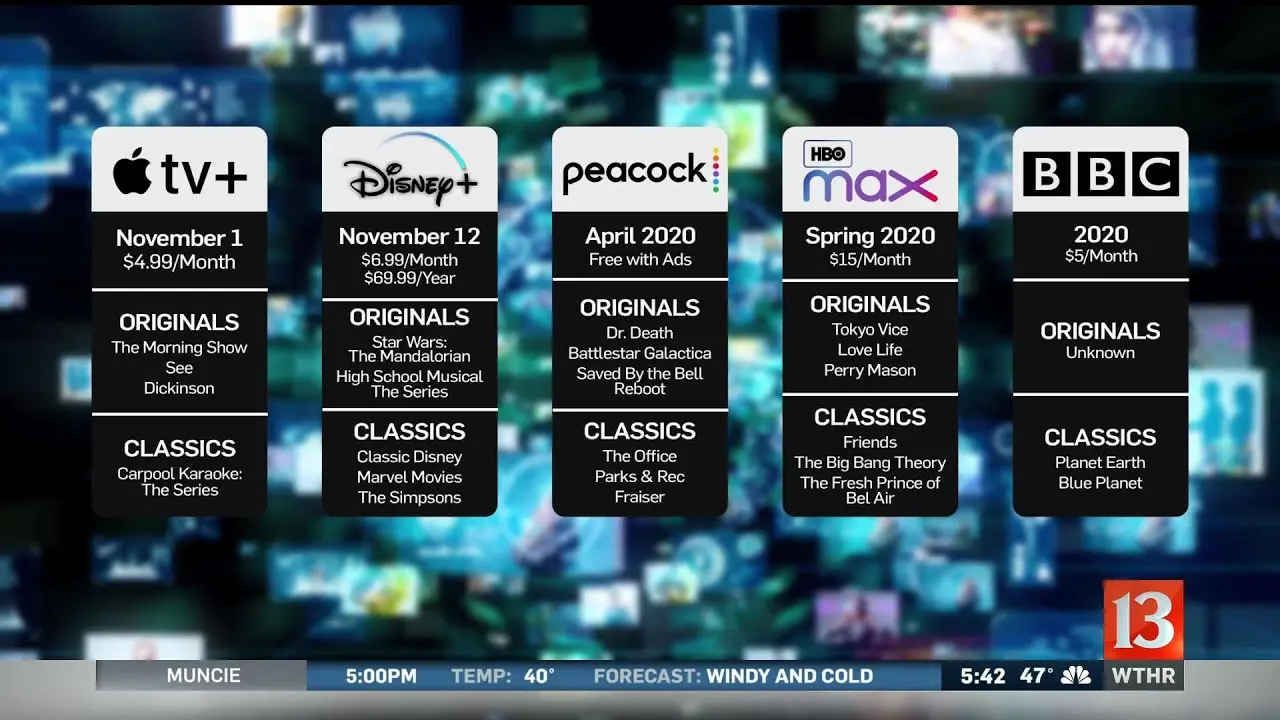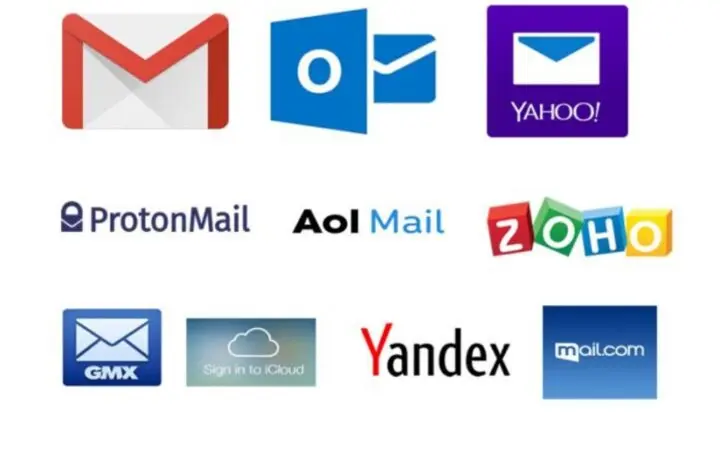Navigating the Metaverse: A Comprehensive Guide to Its Definition and Impact

The term “metaverse” has been buzzing through the corridors of technology, business, and finance, becoming a beacon of future digital landscapes. It’s a concept that stretches beyond mere virtual reality, promising a new realm where digital and physical realities merge. In this blog post, we’ll dive deep into what the metaverse is, its potential implications, and how it’s shaping up to revolutionize our digital interactions.
Table of Contents
Understanding the Metaverse

The metaverse is often envisioned as a sophisticated, interconnected virtual space where people can meet, work, play, and interact in environments that mimic the real world with startling accuracy. But what makes up the metaverse? Let’s break it down:
Key Components of the Metaverse:
- Virtual Reality (VR) and Augmented Reality (AR): These technologies are the cornerstones of creating immersive experiences that are indistinguishable from the real world.
- Digital Avatars: Your personal digital representation that can navigate and interact within the metaverse.
- Economic Systems: The metaverse supports digital currencies and virtual goods, paving the way for a fully functional economy.
- Interoperability: The ability for users to take digital items like clothes or cars from one platform to another seamlessly.
The Evolution of Internet and the Metaverse:
- From Web 1.0 to Web 3.0: The internet has evolved from static webpages (Web 1.0) to interactive and social media-driven platforms (Web 2.0), and now to a more decentralized approach with blockchain technologies (Web 3.0).
- Birth of the Metaverse: Building on these advancements, the metaverse is poised to be the next significant phase – a space where the physical and digital converge through continuous, real-time connections.
Real-World Applications of the Metaverse
The metaverse isn’t just a playground for the tech-savvy; it has practical applications that could transform various sectors:
Business and Workspaces:
- Virtual offices that replicate the experience of physical workspaces, allowing for more immersive and interactive meetings and collaborations.
Education and Training:
- Interactive learning environments where educational material is not just presented but experienced, enhancing engagement and retention.
Entertainment and Social Interaction:
- Concerts, movies, and social gatherings that one can enjoy from the comfort of home but feel like they’re there in person.
Tourism and Exploration:
- Virtual travel experiences that offer the thrill of new places without the environmental impact or expense of traditional travel.
Challenges and Considerations
While the potential of the metaverse is boundless, there are significant challenges to address that span technological, social, ethical, and regulatory domains. Understanding these challenges is crucial for shaping a metaverse that is both innovative and responsible.
Technological Challenges
- Interoperability: For a truly unified metaverse, different virtual environments need to be compatible with each other, allowing users to seamlessly move between spaces with their digital assets and identities intact. Achieving this requires standardization across platforms, which is currently lacking.
- Scalability: As more users join and create within the metaverse, the underlying infrastructure must be able to support an increasing load of data, transactions, and interactions without compromising performance.
- Security and Privacy: Protecting user data and preventing malicious activities such as hacking and identity theft are paramount. The decentralized nature of many metaverse platforms can complicate these efforts, requiring new security paradigms.
Social and Ethical Challenges
- Digital Divide: There’s a risk that the metaverse could exacerbate existing inequalities. Access to the necessary technology—like high-speed internet and advanced hardware—is not universal, potentially leaving behind those in lower socio-economic groups or in developing regions.
- Content Moderation: The vast and dynamic nature of the metaverse makes content moderation challenging but necessary to prevent harmful behaviors and ensure a safe environment for all users.
- Psychological Effects: Prolonged immersion in virtual environments can have unknown psychological impacts, including effects on mental health, perceptions of reality, and interpersonal relationships.
Economic and Employment Implications
- Job Displacement: While the metaverse may create new opportunities, it could also lead to job displacement in traditional industries. Adapting to these changes will require shifts in worker training and education systems.
- Monopolization Concerns: Large tech companies could potentially dominate the metaverse platforms, controlling major aspects of the virtual economy and limiting competition and innovation.
Regulatory and Governance Challenges
- Lack of Legal Frameworks: The metaverse spans multiple jurisdictions, making it difficult to regulate activities such as trade, property ownership, and behavior enforcement. Establishing comprehensive legal frameworks that can adapt to the evolving nature of virtual spaces is essential.
- Data Sovereignty: Issues of data ownership and cross-border data flows in the metaverse will require international cooperation to ensure that user rights are maintained and that data is not misused.
Cultural and Societal Adjustments
- Cultural Homogenization: While the metaverse offers a platform for cultural exchange, there is also the risk of cultural homogenization where dominant cultures may overshadow smaller, indigenous ones.
- Ethical Dilemmas: The creation of digital personas and interactions within the metaverse can lead to complex ethical dilemmas involving identity, consent, and personal expression, necessitating ongoing ethical debates and guidelines.
Addressing the Challenges
To harness the full potential of the metaverse while mitigating these risks, stakeholders—including developers, regulators, and the community—must collaborate. This involves engaging in dialogue, developing best practices, and creating adaptive, flexible governance structures that can evolve alongside this dynamic digital landscape. Through these efforts, the promise of the metaverse can be realized in a way that benefits all participants.
Technical and Ethical Challenges:
- Interoperability issues between different metaverse platforms.
- Privacy concerns, as more personal data becomes integrated into virtual spaces.
- Regulation and governance, which are still in nascent stages.
Economic Impacts:
- Potential for new job creation in virtual environments.
- Disruption of traditional industries like retail and real estate.
FAQs about the Metaverse
What is the metaverse and why is it important?
The metaverse refers to a collective virtual shared space, created by the convergence of virtually enhanced physical reality and physically persistent virtual spaces. It is important because it represents the next major shift in interaction and internet technology, heralding a new era where our digital and physical realities intertwine more seamlessly than ever before.
The metaverse is poised to be a transformative force across multiple aspects of society, economy, and culture:
- Enhanced Connectivity: It offers a new dimension of connectivity, breaking down geographical barriers and enabling people from all over the world to interact in real-time within a three-dimensional space. This could revolutionize remote work, global collaboration, and social interactions.
- Economic Opportunities: It introduces a new economic frontier with virtual goods, services, and experiences. People can create, buy, and sell items in a virtual economy, potentially generating real income and contributing to economic growth.
- Innovative Education and Training: Educational and training programs can leverage immersive virtual environments to simulate real-world scenarios that are either impractical or impossible to recreate in the physical world. This could dramatically enhance the effectiveness of educational programs and professional training.
- New Entertainment Venues: The metaverse provides a platform for new forms of entertainment and art, transforming how we experience everything from concerts and exhibitions to entirely new forms of multimedia interactive experiences.
- Cultural Exchange: It serves as a new stage for cultural expression and exchange, allowing people to share their heritage, traditions, and innovations on a global scale without leaving their homes.
As the metaverse evolves, it will likely integrate further with technologies like artificial intelligence, augmented reality, and blockchain, enhancing its functionality and potential uses. Its importance stems not just from its technological innovations but from its potential to redefine human interaction, economic models, and cultural expressions in the digital age.
Can anyone access the metaverse?
Yes, with the right hardware like VR headsets and sufficient internet connectivity, anyone can access metaverse platforms.
How does the metaverse impact everyday life?
While still in development, the metaverse could transform how we work, learn, shop, and interact, providing more immersive, efficient, and engaging alternatives to traditional methods.
Conclusion
The metaverse stands on the brink of becoming a pivotal element in our digital lives. With ongoing advancements in VR, AR, blockchain, and AI, the metaverse is poised to redefine our digital interactions and create a world where the boundaries between virtual and real blur. As we continue to explore and expand these digital frontiers, the true potential of the metaverse remains an exciting prospect filled with opportunities, challenges, and endless possibilities.
The journey into the metaverse is just beginning, and it promises to be an exciting one. Whether for work, play, or something in between, the metaverse will likely touch every part of our digital lives, reshaping them in ways we can only begin to imagine.





